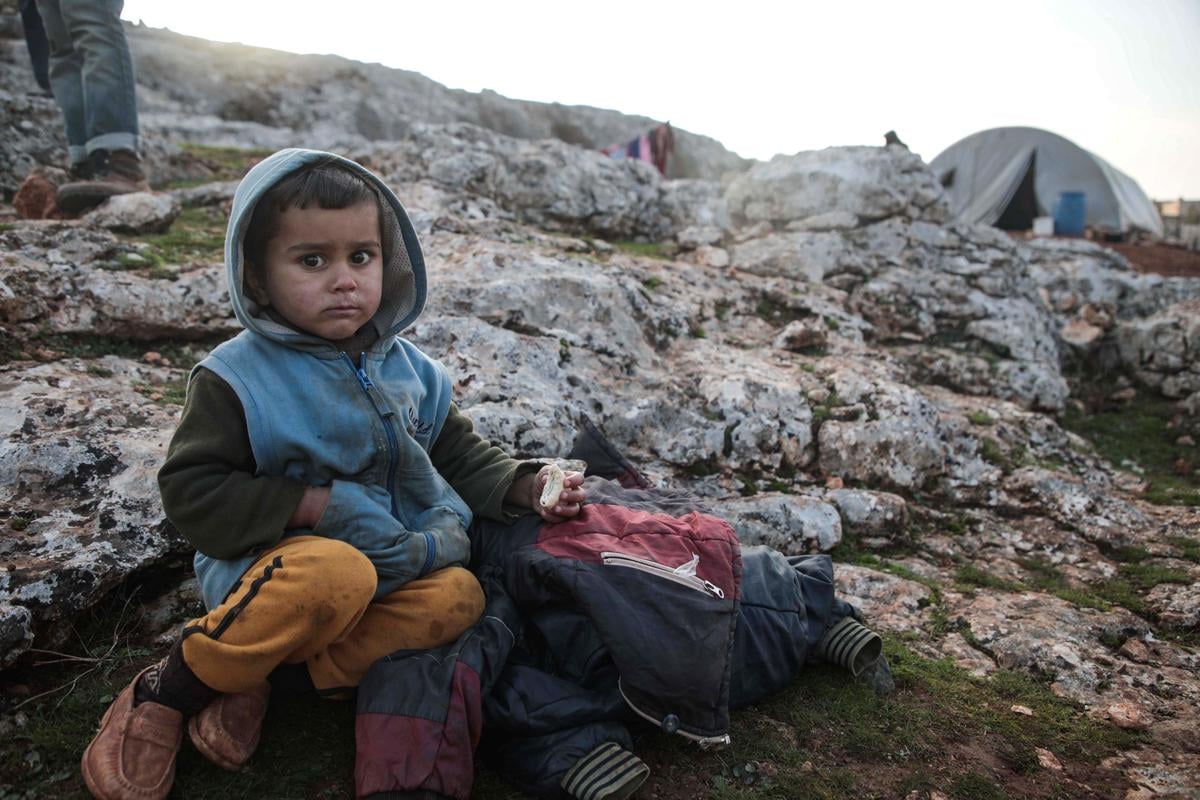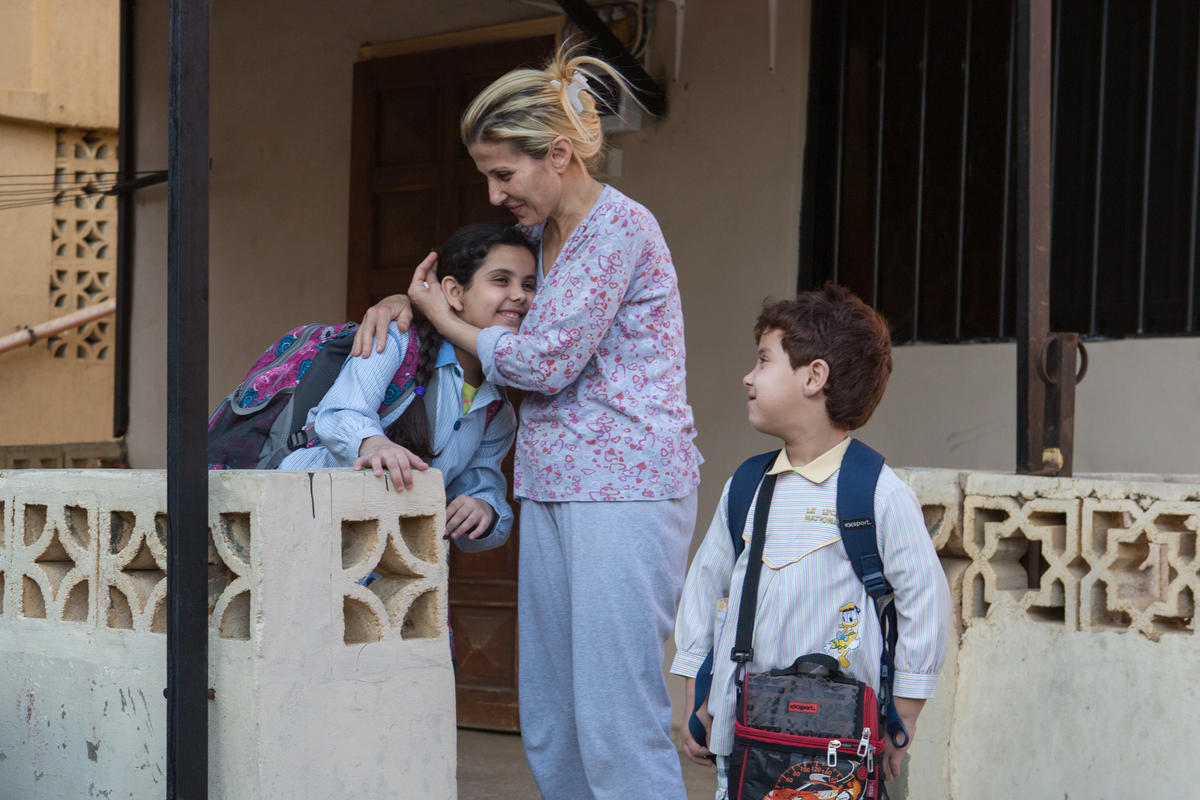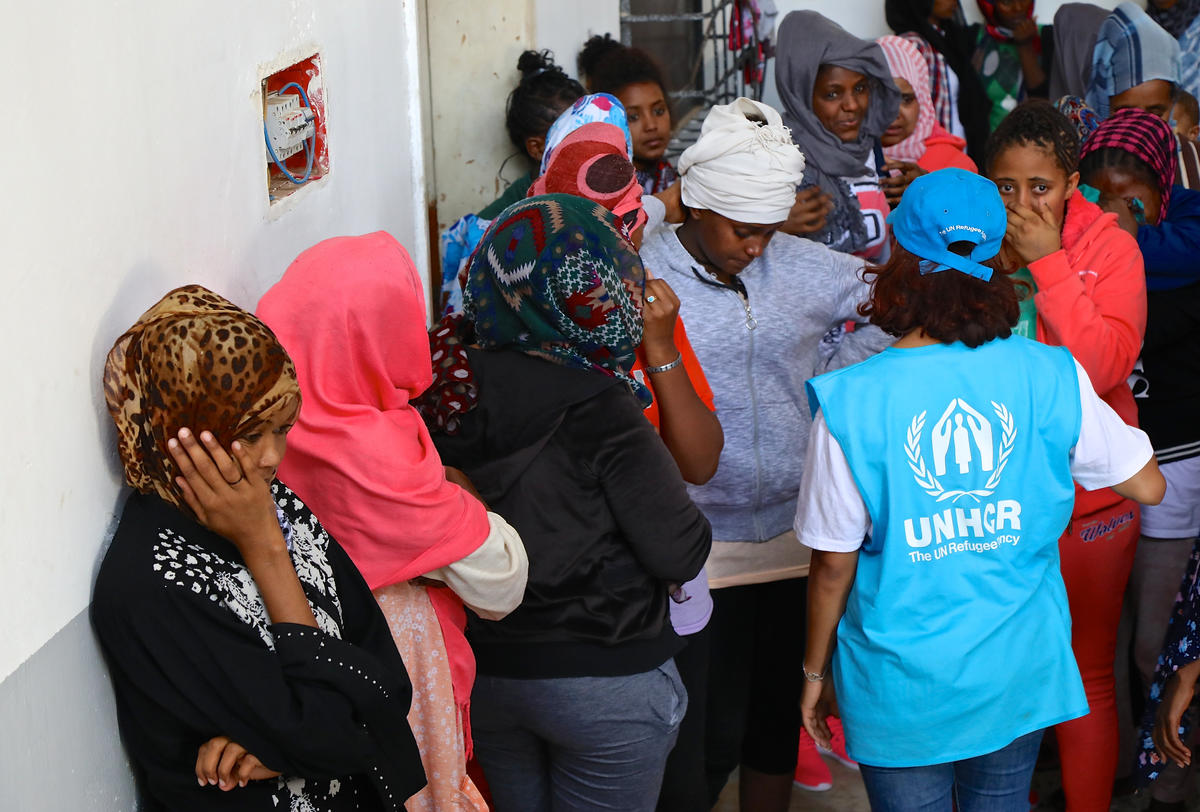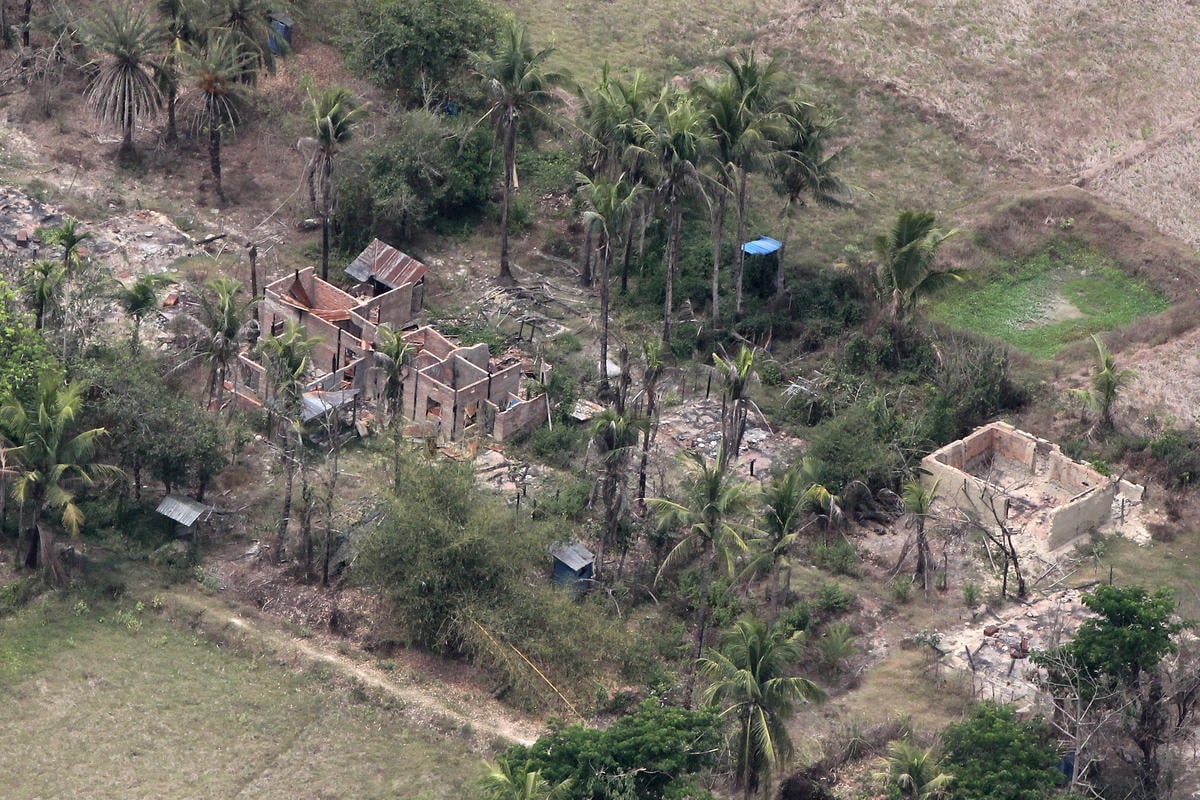UNHCR urges Kyrgyzstan, Uzbekistan to keep border open
UNHCR urges Kyrgyzstan, Uzbekistan to keep border open
GENEVA, May 17 (UNHCR) - UNHCR emergency supplies have arrived at the Kyrgyz-Uzbek border where hundreds of people are encamped after fleeing Friday's violence in Uzbekistan. The refugee agency has asked to move them further inland in Kyrgyzstan, and urged both governments to keep their border open for possible new arrivals.
A UNHCR team that arrived on Sunday has visited two crossing points along the Kyrgyz-Uzbek border. At Jalal-Abad, some 50 km north of Andijan where the violence broke out late last week, they found 541 Uzbeks - mostly men, with 84 women and 12 children - living in a military camp.
"They told UNHCR that they had been out in Andijan on Friday afternoon when the army opened fire," said UNHCR spokeswoman Jennifer Pagonis in Geneva on Tuesday. "They said that panic spread through the city, and many people tried to escape, but that the streets were cordoned off by the military. They said they walked for 10 hours to reach the border, where they were helped by local villagers who led them across to safety in Kyrgyzstan."
The new arrivals have been registered as asylum seekers by the Kyrgyz Department of Migration Service and issued temporary cards valid for 10 days by the Kyrgyz authorities.
Emergency supplies from UNHCR's warehouse in the nearby city of Osh have arrived and are being distributed at the camp. Items include 600 blankets, 100 jerry cans, 1,000 bars of soap and 25 bales of clothing. The refugee agency is sending additional relief aid, including 150 tents, from its warehouse in Dushanbe, Tajikistan.
UNHCR has also negotiated with the non-governmental organization, Agency for Technical Cooperation and Development (ACTED), to provide food to the group. However, noted Pagonis, "we are concerned about the proximity of the camp to the border and would like to relocate the group in order to better ensure their safety, as is the common practice in every refugee situation."
No asylum seekers have been reported at another border town, Kara-suu, 50 km east of Andijan. The visiting UNHCR team saw Uzbeks crossing over for the day to visit families or shop at the market.
"Due to distances in the area, UNHCR has not been able to monitor other entry points along the border," qualified Pagonis. She added that the number of registered asylum seekers to date does not include the Uzbeks who have taken refuge with friends and families in Kyrgyzstan and are not registering with local authorities.
"UNHCR welcomes the Kyrgyz government's assurances that people will not be forcibly returned to Uzbekistan and its moves to register the newcomers as asylum seekers. This is in keeping with Kyrgyzstan's traditional support for international protection and UNHCR's work," said the UNHCR spokeswoman.
She added that UNHCR is sending another three-person emergency team to Kyrgyzstan to support the authorities in the event of an influx from Uzbekistan.









